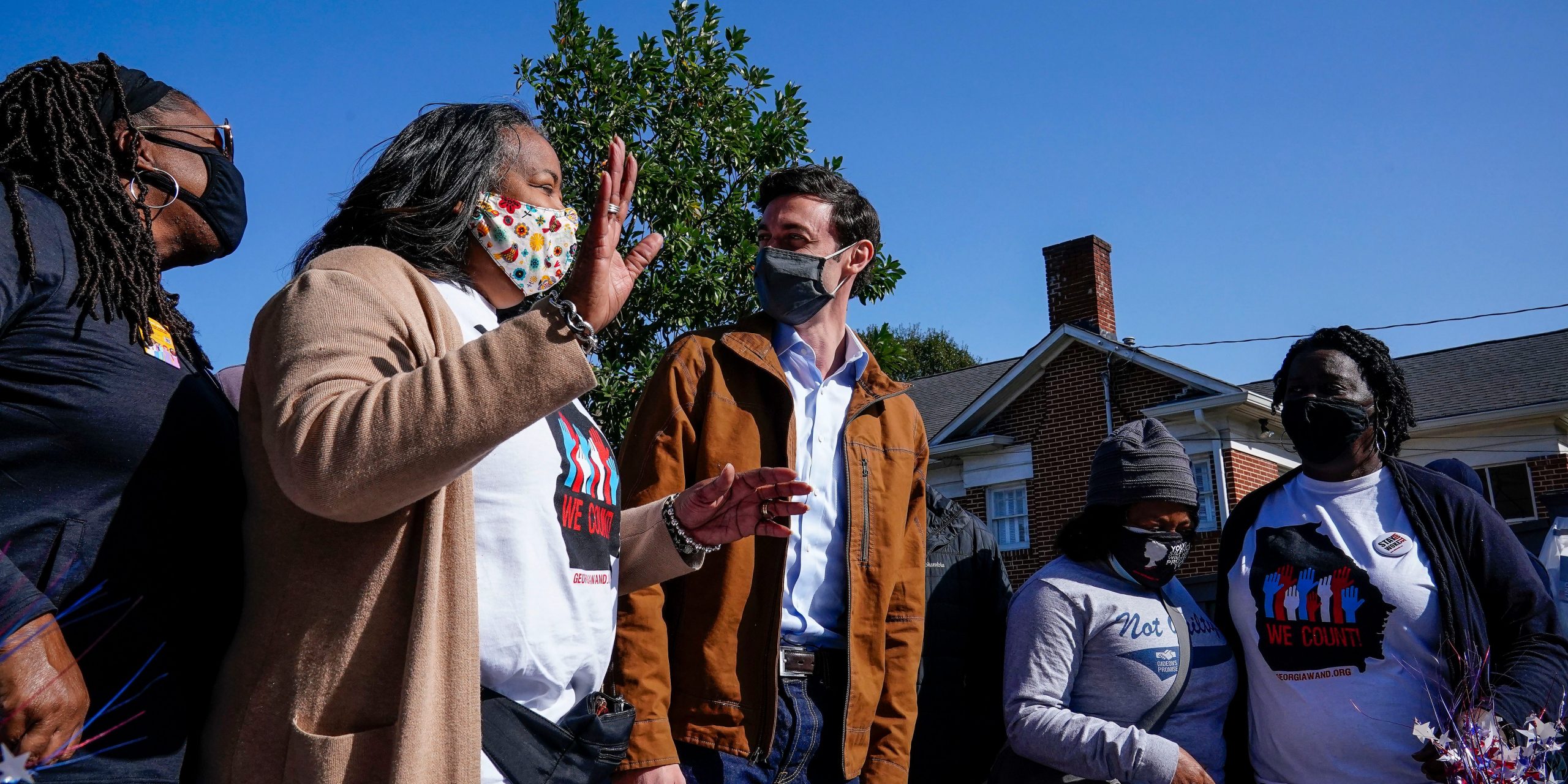
AP Photo/Brynn Anderson
- Georgia Republican lawmakers unveiled a bill that would impose new absentee voting restrictions.
- The proposed bill would also end early voting on Sundays, a day popular with Black voters.
- Many state Republicans are also pushing for added photo ID rules and ballot drop box restrictions.
- Visit the Business section of Insider for more stories.
GOP lawmakers in the Georgia House of Representatives on Thursday unveiled a sweeping bill that would impose new restrictions on absentee voting and end early voting on Sundays, a day when Black churchgoers often head to the ballot box as part of “Souls to the Polls” voting drives.
The push for additional restrictions comes after President Joe Biden defeated former President Donald Trump in the state by roughly 12,000 votes last November, along with the dual victories of Democratic Sens. Raphael Warnock and Jon Ossoff in last month’s Senate runoff elections.
The proposed legislation, House Bill 531, would mandate photo identification to vote absentee, restrict ballot drop boxes to early voting sites and limit their usage to voting hours, and narrow the window for requesting an absentee ballot, among other changes.
The bill was heard in a legislative committee hearing about an hour after the text of the legislation was released to lawmakers, according to Georgia Public Broadcasting.
That same day, a GOP-controlled legislative committee in the state Senate approved Senate Bill 67, which would mandate a driver’s license number or a photocopy of the voter’s identification when submitting a request for an absentee ballot, effectively ending the signature verification system that was continuously criticized by Trump during his various attempts to overturn the election results.
Just days ago, top GOP officials like Lt. Gov. Geoff Duncan couldn't provide concrete reasoning as to why additional voting restrictions were necessary in the absence of any widespread voter fraud.
"I don't think we have identified a problem we are trying to solve," Duncan told The Atlanta Journal-Constitution. "I think this is an opportunity 'to update and modernize' voting in Georgia."
Gov. Brian Kemp and Secretary of State Brad Raffensperger, both Republicans, were excoriated by Trump for not caving to his election pressure campaign; they support photo identification for absentee ballots but have not endorsed any particular bill, according to the Associated Press.
Georgia's actions follow the pattern of GOP-controlled legislatures across the country that are seeking to impose additional restrictions in the wake of Trump's reelection loss.
Democrats and voting rights groups were immediately critical of the Republican-backed bill.
"The public, people of color, they didn't have opportunity to review or to give an opinion and there's a lot of information in here that needs to be digested and looked at," said state Rep. Rhonda Burnough. "I think if we're trying to really work towards restoring confidence that we should be working towards improving everything based on suggestions from the entire state of Georgia, not just us down here in the General Assembly."
Fair Fight Action, the voting rights group started by 2018 Georgia Democratic gubernatorial nominee Stacey Abrams, questioned the proposals, along with 27 other groups, who sent a joint letter to top legislative Republicans stating that the proposals "would have devastating consequences for voting rights in Georgia."
According to Fair Fight Action, 30% of the Georgia electorate are comprised of Black voters, but in 2020 that figure jumped to 36.7% on Sundays, the very day that Republicans seek to eliminate as part of early voting.
Nsé Ufot, founder of the New South super PAC, denounced the proposed measures as race-based voter suppression.
"After stunning losses in the general election and January runoffs, it's no mystery why Georgia Republicans have rushed to enact restrictions on early, absentee and weekend voting," she said in a statement. "Georgia Republicans saw what happens when Black voters are empowered and show up at the polls, and now they're launching a concerted effort to suppress the votes and voices of Black Georgians."